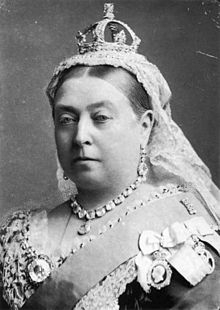The Victorian period corresponds to the years when Victorian the First was queen of the United Kingdom between 1837 1901. She was the granddaughter of the crazy king George the Third. At her birth she was not destined to reign because her father the Duke Edward of Kent was the fourth son of the king. Her father died when she was only few months old and three days before George the Third.
Victoria is therefore educated by her mother, Princess Victoria of Saxe-Coburg-Saalfeld , sister of the future king on Belgium .
Victoria was only 18 years old when she became queen on the United Kingdom, on 20th Jun in 1937. At this time the English Monarchy was in very bad shape. The Hanover dynasty (future Windsor) seemed discredited and suffers from the image that precedents king like Georges the Third or William the Fourth gave to the kingdom.
English society suffered from mutation generated by the second phase of the Industrial Revolution. There was a big gap between rich people and poor people which was denounced by the book “The Two Nations” by Benjamin Disraeli. Democracy was almost inexistent and Universal vote was not established yet. Everything changed during the 64 years of Victoria’s reign. Just before her death, the Monarchy was immensely popular and the queen was at the head of the first world power and an empire spread over 1/4 of the Earth.
On becoming queen, Victoria was trained in public affairs by the Prime Minister in office, Lord William Melbourne. She also married her cousin, a German: Prince Albert of Saxe-Coburg-Gotha the 10th of February in 1840. The couple has a beautiful family with nine children; this family offered to the Britannic people a nice picture of happiness.
The Royal family and the monarchy were at the top of their popularity when the Universal exposition in Crystal Palace is inaugurated in 1851. It was the first in this kind and was imagined by Prince Albert himself in order to demonstrate the magnificence and the hopes of the Industrial Revolution. This exhibition was very successful.
During the years 1850, social legislation was set up for example the obligation of weakly rest and the limitation of the child’s labor.
Numerous reactions were aroused because of the excesses of industrialization and the disfigurement of the living environment in particular novelist like Walter Scott or Charles Dickens who denounced the bad conditions of children. The upward social mobility by merit and work was possible even if the society was still hieratical.
Regarding religion a third of the Britannic population belonged to any religions, but they all shared the same social code.
At that time, Charles Darwin writ his book “The Origin of Species” ; a book about Natural selection which aroused less scientific theories regarding the "strongest" taking over the "weakest", allowing the justification of both colonialism and racism.
After Pell’s liberal government; a supporter of economic free trade, succeed at the head of the government two valuable Prime Ministers, but radically opposed of temperament and policy: the conservative Disraeli and the liberal Gladstone.
At the end of the XIX century aristocracy began to turns away from commerce and neglect the formation of their engineers. So its leadership was disputed by Germany then the United States. Lord Salibusry, several times Prime Minister, had to face the economic difficulties, the protectionist barriers which limit the English exports and the more and more tightened international situation.
England has dominated the planet as no other nation before it, by leaning on the rule of law, the parliamentary democracy and the domination of seas.
During Victoria’s reign, there were lots of little colonial wars in order to conquer new territory or to put in the reason the natives of the existing colonies:
So there were the “opium” wars: China had to open its ports to the occidental commerce. In India, after the cipayes revolt, England took the administration of the territory in 1857. London also imposed its protectorate in Egypt after the opening of the Suez Canal. To protect the route to India, and spreads its protectorate in Sudan after the battle of Omdurman, near Khartoum, where 8.000 British and 60.000 Sudanese dervishes.
They managed to dominate the world according to the imperialist views that Benjamin Disraeli expressed on June 24th, 1872, in London, at the Crystal Palace. Prime Minister, burning supporter of the colonial conquests, offered to Victoria the title of empress’s India on January 1st, 1877.


